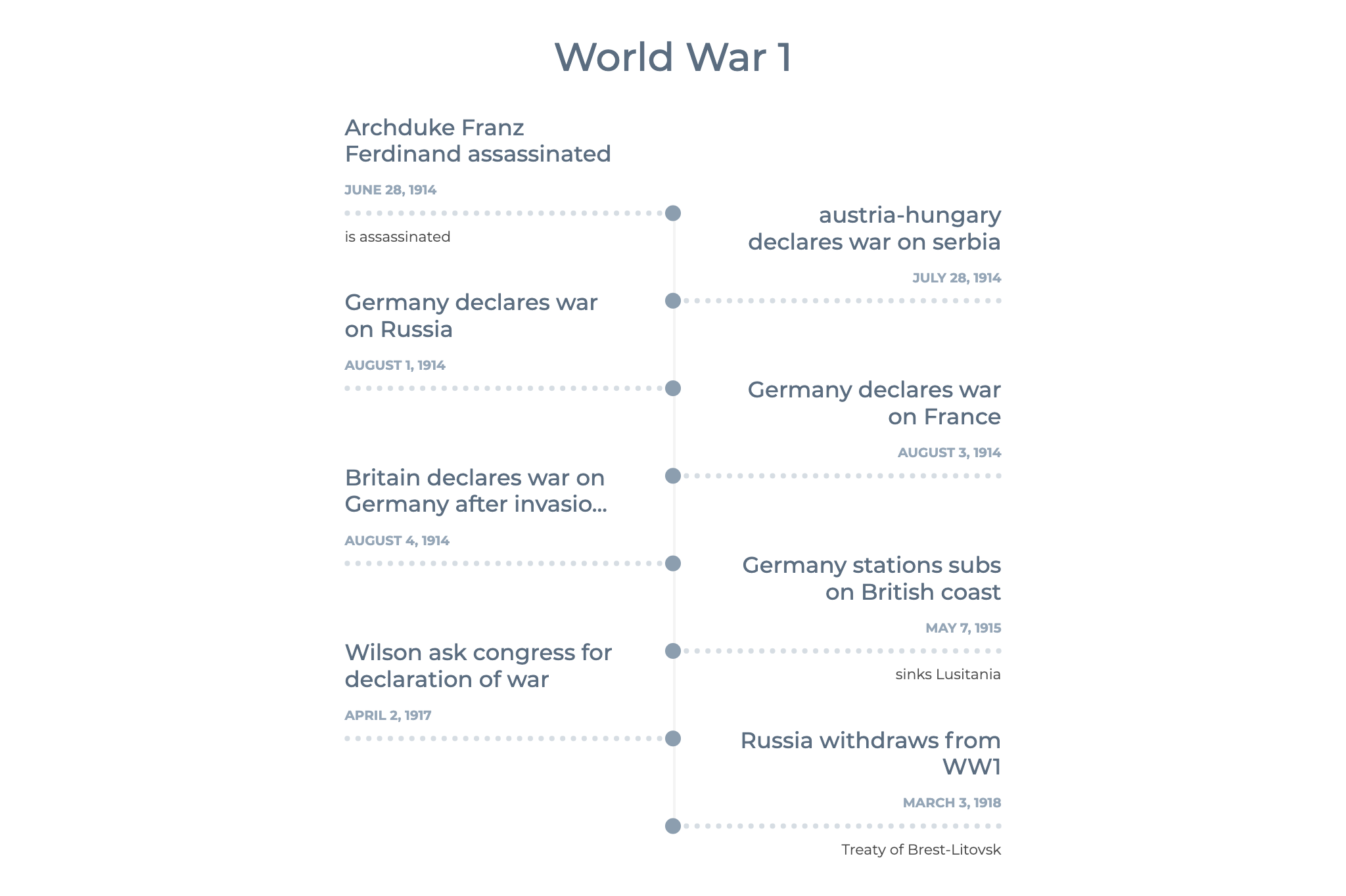
ww1
4 reasons for ww1
militarism - an arms race (competition to build up the military_ developed in Europe
Alliances - a tangles network developed where countries agreed to come to the aid of their friends
Imperialism - the intense competition for colonies led to fears of large scale conflict among the imperializing countries
Nationalism - extreme patriotism, proving national superiority was more important than world stability. Nationalism is the belief that loyalty to ones nation and its economic and political goals comes before all else
Major Alliances before wwI
Central powers/Triple Alliance - Great Britain, France, Russia
Allies/Triple Entente - Germany, Austria-Hungary, russia
Neutral - officially not aligned with either the central powers or the allies, few were powerful. others like Italy, switched sides
other vocab!
Zimmermann Telegram - german attempt to have Mexico join the central powers during the war
Propaganda - ideas spread to help a cause, They may be false or exaggerated
reporting - a written description of a situation or event
Gavrilo Princip - member or “black hand” from serbia, assassinated Franz Ferdinand
adeveertising - calling attention to something (especially by paid announcements)
Sinking of Lusitania - British ship sunk by german because they thought it help weapons, killed at least 1,000
Timeline!

Allies launch Meise-argone offense - September 26, 1918
Germany agrees to an armistice; war over: Nov 11, 1918
ww1
4 reasons for ww1
militarism - an arms race (competition to build up the military_ developed in Europe
Alliances - a tangles network developed where countries agreed to come to the aid of their friends
Imperialism - the intense competition for colonies led to fears of large scale conflict among the imperializing countries
Nationalism - extreme patriotism, proving national superiority was more important than world stability. Nationalism is the belief that loyalty to ones nation and its economic and political goals comes before all else
Major Alliances before wwI
Central powers/Triple Alliance - Great Britain, France, Russia
Allies/Triple Entente - Germany, Austria-Hungary, russia
Neutral - officially not aligned with either the central powers or the allies, few were powerful. others like Italy, switched sides
other vocab!
Zimmermann Telegram - german attempt to have Mexico join the central powers during the war
Propaganda - ideas spread to help a cause, They may be false or exaggerated
reporting - a written description of a situation or event
Gavrilo Princip - member or “black hand” from serbia, assassinated Franz Ferdinand
adeveertising - calling attention to something (especially by paid announcements)
Sinking of Lusitania - British ship sunk by german because they thought it help weapons, killed at least 1,000
Timeline!

Allies launch Meise-argone offense - September 26, 1918
Germany agrees to an armistice; war over: Nov 11, 1918